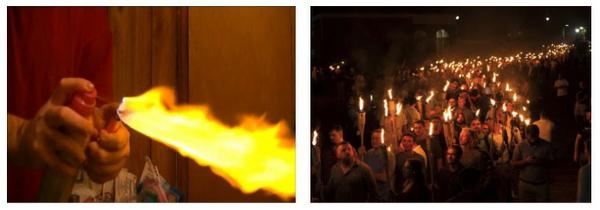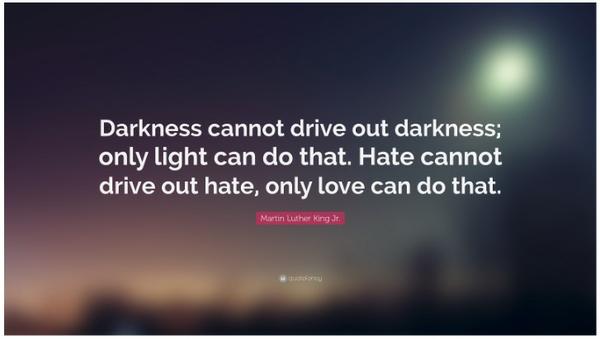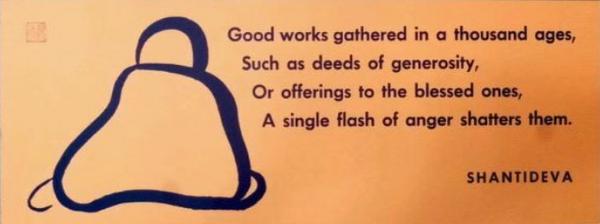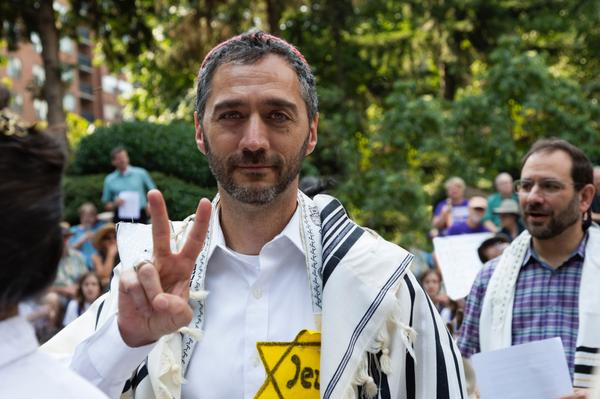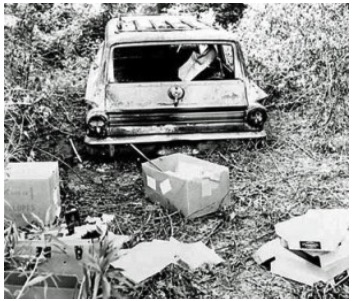When we act out our anger, we are adding kerosene to the fire. (Or, in this case, hairspray.)
A single flash of anger – like I had last week in the kitchen at my daughter who was impishly hopping away from me with two feet in my right slipper even after I had asked her calmly three times to give it back to me – shattered the entire morning of goodness that we had together. I left the house with her so mad at me she wouldn’t speak to me. I shattered the good works with a single flash of anger.
We can not respond to anger with anger.
When they go low, we go high.
We must love our enemies.
Love them.
We must distinguish between them and their actions because if we do not, we are liable to conflate the two. They are not the problem. Their actions and beliefs are.
Rabbi Bruriah – a brilliant woman sage of the Talmud – taught to pray for the repentance of the wicked, rather than for their destruction. According to the story, she once found Rabbi Meir praying that an annoying neighbor would die. She reproached him explaining that Psalms 104:35 promises earthly redemption when sin, not sinners, are gone.
We must see that our enemies are not fixed – this is what stereotypes are. We must see that our enemies are human beings – human beings who are capable of change.
Jesus is quoted in the Gospel of Matthew as teaching that to be aligned with God you must “love your enemies and pray for those who persecute you.”
Parenting as an analogy
I think of my adversaries – the neo-nazis, my president, and others – as though they are petulant children.
My adversaries are wrong.
Unequivocally wrong.
They are storming on.
They are loud.
They aren’t listening.
They are petulant like children.
I want to quash their mini rebellion.
But no one learns in shame.
There is not a parenting book that advocates shame.
There is not a parenting book that advocates ridicule.
There is not a parenting book that advocates shouting louder.
Being certain means only that you are certain, not that you are right.
Being louder means only that you are louder, not that you are right.
Being angrier means only that you are angrier, not that you are right.
If we want petulant children or adults to change, we have do it this way:
With firm conviction. With patience. With love.
We must love them.
Those we hate – those who shout at us how much they hate us – we must love them.
Loving our enemies might might be the opposite of our natural reaction, but it is what we need to do.

